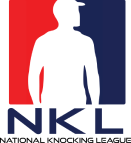Speaker 1: (00:02)
Bill, Can I help you?
Speaker2: Hey listen up, I’m bringing you the best content to ever exist in the door to door industry from sales leadership, recruiting, impersonal development.
Speaker 1:
Why would I need that?
Speaker 2:
Because never before have we been able to collaborate with the top experts in their industries, sharing their secrets and techniques and what makes them the best.
Speaker 1: Wait, who? Who are you?
Speaker 2:
I’m your host. Sam Taggart, creator of the D2D experts in D2Dcon. Is there a place we can sit down?
Speaker 1:
Well come on in.
Speaker 2:
D2Con is right around the corner with Mastermind Day, January 16th in Salt Lake City, Utah with Tim Grover, Author of Relentless and Michael Jordan’s coach.
You also have a marquee speaker in former NBA all-star, January 17th and 18th at the salt palace in Salt Lake City, Utah. I’ll tell you of Ed Mylett, Coach Burt, Tim Grover, and many more famous speakers and workshops on how to improve your leadership, sales and recruiting. Register today, D2D con.com for D2Dcon. New users, we have a DVD you after-party Friday night. Don’t miss out. Pre-register at D2DCon.
Speaker 3: (00:43)
Hey everybody, this is Sam Taggart with the D2D podcast and I have seven-foot Mark Eaton on the podcast today. He is a former NBA All-Star and played for the Utah Jazz. My team with my players, Carl Malone, John Stockton. Who else did you play with? Who else has just blown thorough? You know what I mean? It’s, it’s nuts. So anyway, former NBA all star.
You also his partners in some really renowned restaurants here in , Utah. And he is a national speaker. He speaks for all sorts of a worldwide speaker. You’re going to Acapulco here in a minute, so yep. Worldwide speaker. And he is a speaker at door to door con coming up in January. So who will be there at the actual mastermind. So what’s cool is he speaking twice, which I think I’m excited about.
Speaker 3: (01:36)
So he is really trained companies and consultant and spoke on team and creating, you know, teamwork and how to leverage your skill set. And he has a book called the four commitments of a winning team. So if you’re looking and interested to learn more about Marquis and you can go on Amazon and get this book for commitments of a winning team, he also is, so he’s trying to get the mastermind on how to create better teamwork and coaches and then he’s speaking at the event. So if you’re coming Thursday, get your mastermind ticket, uh, the 16th, if not general mission, he’ll be speaking from the main stage. So super excited to have you, um, on the podcast. And it’s, yeah, I’m excited too. It’s going to be a fun event. This will be good. So we’re live here at his house in park city, Utah, which is, which is pretty cool.
Speaker 3: (02:21)
So I grew up in park city, so I played football with his son and um, I’d seen him at the games and every time, you know, he’s sitting on the sideline, you’re like, there’s more Keaton, too bad. His son was like, my height is like try what? Six? But I don’t know. He’s like six, three, six, six, three. It wasn’t like he was this tall dude. He was no up. He was more of a football body, that’s for sure. Big dude played on in solid. Yeah. Um, no, but super, super excited to learn. Today we’re going to be diving in on, you know, what makes a winning team? What made you great? I think one of your, your story is actually really unique in most regards of an NBA player. Um, most people, they are really good and then they get really good and they play in the NBA. And that was not the case with you. Right? So tell us, so let’s talk about that. So high school, your six 11 plan in high school but not really plan until,
Speaker 4: (03:14)
yeah, I didn’t play much in high school. I grew up in Southern California and it was growing pretty quickly back then and pretty uncoordinated. Didn’t know what to do with myself. I don’t think the high school coach knew what to do with me either. And I just sat on the end of the bench. I was pretty miserable and basketball was not fun. Didn’t really,
Speaker 3: (03:32)
they’d be like water polo. More like, did you like other sports?
Speaker 4: (03:35)
Uh, yeah. Yeah. I did like water polo a little more because we all grew up with the beach down there in Southern California. So we were always on the water going, you know, body surfing or whatever. And so we got to high school, like what we want to do. Let’s let, let’s pick water polo. We’re in the water. That’s what we do.
Speaker 3: (03:49)
Could you touch the bottom and everybody else is sending the tread. Yeah,
Speaker 4: (03:52)
yeah, yeah. Something like that. Uh, and then, uh, but as, as my high school career went on, I thought, well, you know, the, the coaches were kind of like, you should really focus on basketball. And, and I tried to do that, but I wasn’t very good at it. And so, um, so subsequently after high school I said, okay, I’m done with all this sports stuff, you know, and then let’s just figure out what we’re going to do for, to get to for a job. And so my friends are going to college, taking general ed classes and stuff and that didn’t really intrigue me. And I’m, a friend of mine is going to trade school in Arizona. We’re going to be an auto mechanic. And I had grown up working on boats with my father in the harbors of Southern California. He was a Marine diesel mechanic.
Speaker 4: (04:30)
And so I decided to go to trade school for a year and learned to be an auto mechanic. I thought, well, Hey, it’s something I can do. Uh, the only one had require a year of school. I get a certificate and I could get a job and then go from there. And so that’s, that’s what I did. And, and I was back in Southern California after completing that class, those classes out there and was working in a tire and auto center, you know, just like, uh, like a Goodyear store or one of those kinds of places. And, um, and in junior college, coach, uh, cruised in one day and saw me there, he was a basketball coach and he said, you know, what are you doing? Like it cuts down on something, put four, cause I grew till I was about 20. And he’s like, one, you know, like, why don’t you play basketball?
Speaker 4: (05:14)
I’m like, well, if I suck at basketball, don’t like it. Don’t want anything to do with you coaches or any of that kind of stuff. It was not a fun experience. Um, but he, um, he had worked with a couple of big guys and it, and it’s a much longer story, but he had worked with some guys who went on to play collegiate and professional basketball and he knew some things about how to play. Basketball’s a big man that I didn’t know. And after a lot of cajoling, he convinced me to go out of the basketball court room for a half an hour in, show me some of these things. And, and, and it was intriguing because he knew basketball from the perspective of a, of a big, of a big guy, of a post player.
Speaker 3: (05:51)
And what was your high school coach? Was he just playing from a guard maybe like, was he,
Speaker 4: (05:55)
well, you know, you gotta think high school coaches are like, Hey, you’re the English teacher. Like, Hey Sam, you wanna be the basketball coach. Here’s an extra 1500 bucks for the year. You know, you’re now you’re the coach. And so you don’t necessarily have a basketball background. They might’ve played it in high school or something, but it’s not like you’re, you know, you had some guy who was a, had been a collegiate player or something like that, who understood the game of basketball, uh, from all aspects. And so I, you know, I don’t blame the coach as much as it was just like, you know, I was tall. I didn’t know what to do. He didn’t know what to do with me. And, and this particular coach in junior college, uh, had some background, he had an uncle who was six, nine, um, back in the 30s and forties, who played basketball in a develop these moves for big guys that, uh, were something that you could do with that, a lot of dribbling from the low post and, or the basket. And he showed those to me and I was like, Oh, this is kind of intriguing. Like I’d never seen this before. And so at that point in time, and I said, all right, I’ll, I’ll start doing this in the evenings a little bit and just kinda see where it goes. And so then ended up into, you know, eventually quitting my job as a mechanic, going back to junior college and playing two years at junior college and going on to UCLA from there.
Speaker 5: (07:11)
That’s awesome. Yeah. I played ball this morning and I, I’m five, 10, but I just play like I’m five, four. So my Postmates are, it’s like, so you need to read the books I need to put, yeah. I’m like, I know I need to learn. Here’s, I know my job. It sit in the corner, hit the three in there that they know how to dish it. Just have to see it. Braden knows. Um, no, but I mean for us it’s like, eh, I think that’s interesting in and of itself. The principal of kind of your first principle in your book is know your job and, and I think if you didn’t really know your job in high school, it sounded like, it’s like, obviously I’m tall, but that doesn’t mean I know how to do my job really, really, really well.
Speaker 4: (07:49)
Yeah, I was, I was not able to take, well, I didn’t know that I had skills to begin with. And this coach crunch time showed me that like, look, here’s some things you can succeed at on the basketball court now. I was still really rough. I was out of shape. You know, I hadn’t done anything athletic for a long time, but he showed me just enough to peak my interest to say to myself, Hmm. You know, maybe there’s another chance to look at this basketball thing. Maybe it’s not a door that’s completely closed. And so, um, so I took that information. I just started working with it and it was hard. It wasn’t, it wasn’t easy at all because, um, I had to get into condition. I had to learn how to, I mean, I’ve been twist and wrenches and sand and Encore for sources.
Speaker 4: (08:29)
Yeah. I’ve been over the hood of a car. I was not in any way, shape or form an athlete at all. Um, but we kind of worked through that over a period of months and, uh, and he showed me how I could kind of succeed in basketball, at least at the junior college level. And then as time went on and I went to the, to the upper levels, like going to college and things like that, I, other people came alongside of me and showed me even more what I could do to help my team win and help myself as a player at the same time. And so my whole crew was always about that, about, you know, focusing on the one thing I could do to help the team, um, which would help my own career because of the team wins. I win. Right. And, um, uh, and so they were very specific about, I always listened to those coaches to say, okay, what do I need to do next? What’s the next thing I need to work on? Uh, from that standpoint of I’m going to be really good at this one thing, which in my case was playing defense and helping my team win.
Speaker 5: (09:28)
And you won some awards for most blocks and you’re up there with them become mutton bows and the, yeah. You know, which is, yeah, which is cool. I mean that like, and a lot of people, they highlight the Michael Jordan’s in the, you know, scores cause it’s like, okay, that guy’s a score. But it’s like sometimes it’s overlooked. Like you have 3000 block shots there and you have, you know, you like your defensive role probably made the jazz what they were, I mean, they were dominant force back.
Speaker 4: (09:54)
Well, when I, when I came to the jazz, uh, you know, that our coach Frank Layden, we were a pretty bad team then in a bad market at the team was losing money, not winning very many games and a lot of guys back then when you’re playing on a bad team, I was like, can show up. You know, you go out and play, you put up your 15 shots, like a, that was a good effort. When you lose, nobody really cared and you go home and yeah,
Speaker 5: (10:18)
kind of weird that you still like MBA. We’re talking like MBA level and that’s the way of thinking.
Speaker 4: (10:22)
Well, you know, if you play on a team that loses 50 games, it’s it, you know, losing, it becomes a culture. Uh, like it or not, it does. And it takes a lot of work to overcome that. And so Frank Laden would just look for little tiny victories. He’d say, Hey, I’d rather lose the game by two points instead of three, because two points is closer to winning. And he’d say things like, nobody cares. You’re scoring a lot of points on a losing team. Everyone wants to play ours from a winning team. And he said, if you, if you continue to work and help your teammates and be there for each other, the individual accolades will follow because when the team wins, everybody starts paying attention to the individuals. And so are you looking at corporate and corporate culture? If you have a winning sales division, even the administrative assistants are viewed as more valuable because they’ve been part of a winning
Speaker 5: (11:11)
cultural, yeah, your technicians, your admins, your , they’ve
Speaker 4: (11:14)
learned how to win. And so when they go and look for another job or an executive recruiter comes in or something like that, they’re like, wow, you know, let’s look at this division. Everybody in this team on this team knows what it takes to win. Because growing up, most people don’t learn that. You know, if you have the opportunity to play on a winning sports team growing up, you know, you might understand a certain point of it. But in business, everybody used the term uses the terminology. We’re a team, we’re a team, we’re a team without really understanding what it is from the inside out. And so my unique perspective on the platform is one, coming from the NBA where you know, you’ve got to win this week because if you lose three or four games in a row, you can be live in a new city next week.
Speaker 4: (11:52)
So they’ll trade you. Uh, and so you couldn’t wait for the next, you know, sales conference or a board meeting or whatever it was. It’s like he had to get winning figured out today. If that meant kicking the coaches at closing walk room and working it out between yourselves to get back to your winning ways, that’s what was required. And so that’s, uh, uh, you know, that’s it. And so I live that and I thought, well, that’s just what we did. And when I got into more into motivational speaking, I thought, wow, that’s a unique perspective that I have that most people don’t because they haven’t been in that situation. And so being able to share that with people and get them to understand what it really is to be there for the people around them is, um, it was kinda fun.
Speaker 5: (12:31)
Yeah. Cause, I mean I think a lot of people in sales, they see it as a solo game. You know, they’d look at it as like golf, right? It’s kind of like, Hey I win by myself. But it’s also like this isn’t a goal. Like there’s so much to do with the success of a team that actually reflects back on you as an individual performance. Cause you look back and it’s like how’d you have made the NBA all star league without the team and the winning and the, and the this momentum. No, I mean you would’ve just been another big man. You know what I mean? But it’s like you guys pulled through. So I guess when was that turning moment? Because a lot of people listening to this might be on a losing team or they might be in the moment of like, yeah, our team sucks. I just kind of go out by myself so I come home. I feel like the motivated because there’s no energy or synergy. At what point did it kind of turn for you guys to say, let’s turn the jazz program around cause you were part of the losing team and the winning
Speaker 4: (13:24)
I think number one, we had a coach who preached it every day and uh, you, you know, and you look at coaches and professional sports and they’re always saying the same things we can look at like coach John wooden or you know, some of the great football coaches, the things that you hear over and over and over again, or you hear a lot of it in sales training. Some of these, these messages that you get. Well, why do those messages work well? Because it’s about consistent effort day in and day out and staying true to your principles of who you are. You know, a lot of times in sales you think you have to go out and reinvent the wheel. Like, I got to do it my way. Well, that’s not true. There’s other great people out there who’ve gone before you who figured it out.
Speaker 4: (14:02)
And your job is to learn from them and apply those things to your own situation. Yeah. You’re not like anybody else in terms of who you are as a person, but there’s tips and techniques and tried and trued methods of winning a basketball game or winning in sales that always work if you’re willing to apply them. And I think that’s the, that’s what I learned along the way. I was always working so hard to try and figure it out myself and people would come along side me, like I tell a great story in the book about, about wilt Chamberlain coming alongside me one day at, at the gym at UCLA and saying, dude, why are you running up and down trying to chase all these little guys up down the court? You’re seven foot four, like park your butt underneath the basket. Like block shots, play defense. Like that’s something can be really good at. And I was like, Oh, that makes sense. Uh, duh, things will, one of the greatest
Speaker 4: (14:54)
it’s ever in my life. Um, but uh, you know, so I think sometimes we get in our own way of thinking like, Oh, this is so hard. I gotta figure this out. It’s like, no, you gotta step back for a minute and look at what successful people do and apply some of those principles and execute them on a daily basis. Um, you know, one of my good friends, uh, named Mark Leblanc, he wrote this little book how to succeed. And I think it’s how to succeed in small business. Um, and he, and it’s just a short little book, but he talks about what are the three things I’m going to do today to move my business forward and I’m going to get done no matter what because we have a tendency to get so bogged down with, I gotta fix this. I gotta do that. Oh no, no.
Speaker 4: (15:36)
And, and sometimes you gotta sit back and say, what are the most important things? What, how do I prioritize my tasks for the day? Or what’s the shortest distance between me and a check? Um, to, uh, to get yourself motivated to do those things that are the most important. Cause we learned them in, in sales training and uh, other types of training we do. But then we just get sidetracked and it takes discipline to get back to those things. But you’ll find that if you’re able to do that and really focus in, it’ll start producing results because it just builds on itself each day. And you’ll find that the other noise kind of dies down once you get real clear about what the next steps you need to take part and then dedicate yourself to actually executing them.
Speaker 5: (16:17)
Yeah. No, that’s awesome. I think a lot of times people aren’t willing to stay in this like phase of concentration and like just put their head down and like stick with that. You know what I mean? They’re like, Oh, I tried it for a couple of days, or it was, you know, that didn’t work. And I’m like, no, no, no, no. These are the same principles. Everybody’s seeing the same things. It’s just over time it will work. You have to be willing to have that patience to the journey.
Speaker 4: (16:42)
Yeah. And I think, unfortunately, we live in a culture right now of the shiny penny. Like everybody’s chasing the shiny penny. I’m going to try this, I’m gonna do that. I’m like, Oh, look at this, look at this guys doing on social media, whatever. And, and while there’s some things like that, that certainly can be helpful. The bottom line is, is that, is that sales doesn’t change. You know, it’s about connecting. It’s about making relationships. It’s about a determining who your customer is and what they’re really looking for and what their biggest pain is and how are you going to solve that? I’m from whatever you’re bringing to the table. Right? And, uh,
Speaker 5: (17:14)
so the foundation of that will never change. And everybody’s trying to market this secret and this trick and that this, and try never to talk to the human being and I’ll get you sales. And it’s like, what are you like, no, there is no changing from the historical moment of trade of relationship and discover problems. Solve them. Right? You know,
Speaker 4: (17:34)
how are you going to make my life better? Right? And, um,
Speaker 5: (17:37)
which, which, which if we applied this, like what’s funny is people, if they just practice those like attributes of being really, really good at that, just like you probably practiced your post move how many times that little like baby, that
Speaker 4: (17:50)
little drop step, little,
Speaker 5: (17:51)
you know what I mean? It’s like how many times did you do the turn with the ball where the ball is, where’s your elbows? Where’s, where’s your center of gravity? Where’s your step? I mean, you had that thing in your sleep, I’m assuming. Right. And I think that a lot of times people aren’t willing to say, dude, I’ve done this step thousands and thousands of times. And just like in sales, they’re like, Oh, I tried it or I went out for a day, I went out for a week and it didn’t work out. Or you know what I mean? And how many times like, no, no, no, keep doing the same step and keep getting refined. And I promise it. Oh, like you become the master at that step.
Speaker 4: (18:27)
Yeah. And, and uh, and it’s not easy. I know, um, for a couple of years ago, and I, I wish I could remember the name of this company. They’re, they’re in Tennessee and I know they’re in the business of like selling children’s books door to door, and you show up for their programs Southwestern. Yeah. Tennessee, Tennessee. And you show up at their door with nothing, right? You have to figure out where you’re gonna live. How are you gonna support yourself? And the only way you’re going to do it is by selling these books,
Speaker 5: (18:53)
right. It’s in anybody that Chan and a lot of people listening to this don’t know the world of Southwestern. Trust me, I started in investigate and learn it. They literally make you move and say your first sale is your
Speaker 4: (19:04)
a place to live. Right. It’s like, it’s crazy. Yeah. Um, but at the end of the summer, you know, a lot of them make a substantial amount of money by figuring, figuring that out. But the point is, is that you really have to dive in to figure it out. And, um, uh, and I think once it becomes that important to you, like for those guys, it’s like, geez, I don’t have any place to live and going to eat. This is what I have to start with. I’ve got to go sell myself. Uh, that’s, you know, that’s training by fire to a certain extent, but it gets you over those objections of like, I’m, you know, I’m not good enough. I’m not smart enough. I can’t do this or all the things that come up for you. Uh, and uh, and I had all those things play as a basketball player.
Speaker 4: (19:46)
They might do that. Yeah, I did. I was a basketball. I’m done. I’m done with basketball. Harry. I’m 21 years old. I’ve been eating junk food for three years. Um, I haven’t played, picked up a basketball or done anything athletic whatsoever, just been working on cars. And, um, and it was hard the first few weeks I was like, Oh, this is not going very well and I don’t feel very good about this. And I can barely get out of bed in the morning cause I’m so sore and tired. But my coach was like, come on, you know, let’s just do it one more time. One more time, one more time, one more time.
Speaker 5: (20:13)
And then that goes to say like, what about a good coach? You know what I mean? I think a lot of people, there’s, there’s two aspects, right? So that the, and that’s what I wanted to talk about was one for the individual that’s sucking and they’re like, I just can’t figure this out. Like, I’m sure you’re beating your head against the wall quite a few times. Right? Right. What do you like, how, like at what point do you give up and at what point do you just say, I’m going to double down and keep trying? Like, you know, you’re like,
Speaker 4: (20:39)
well, I always believe that I, you know, when I started playing basketball again, I said, all right, I’m just going to play this through. I don’t know where it’s going to go. I had no idea if I’d be an player for, I’d get done with college and that was it. And like go get my toolbox back out. I had no idea. But there was something inside of me where I said, all right, I’m just going to keep doing this until all the doors are shut. And as long as there is a crack in one or I can see some little opportunity. I mean, when I, when I left college at UCLA, uh, the coaches really weren’t there to help me in terms of like trying to get an MBA job. I mean, I sat on the bench for two years at UCLA. I never played.
Speaker 4: (21:14)
And, um, my junior college coach Tom, you know, we just got out the NBA statistics and we started cold calling NBA teams. I mean, you can imagine doing that today. Like, like I just felt like I just want to try out in the college. I didn’t play in college, but I want to try out for your NBA team. Yeah. And uh, and so, um, and so what we did is we targeted the worst teams in the NBA. It makes who’s, who’s going to give an unproven player a chance. The guys who already suck and are looking for anybody to help them. And, uh, and the Utah jazz were in that situation, they’d just come off a season where there are 25 and 57. So they’ve lost 57 games the year before I got there. And, uh, and the, the team was on the verge of bankruptcy. Uh, it was, um, you know, the, uh, the staff was told not to cash their paychecks until players cash.
Speaker 4: (22:05)
There’s, I mean, that’s how bad it was back then. And, uh, and so we called them because there’s that, well, maybe they give me a chance, and Frank, who was the general manager because he had a, a team that was not very good. He was looking for help and he’s like, okay, wait a minute, this guy, seven foot four. He’s like, well, I never heard of him, but you know, like, send me a tape, let me look at something. And we did. And he took a shot on me in the fourth round, which is no guarantee of a job whatsoever. Uh, and, uh, but then he came out and watched me play in the summer league. And because I had kept working, I’d followed the discipline, the execution that my coach Tom had told me. Um, he saw just enough where he said, you know, I think I’ll give you a shot just for a year.
Speaker 4: (22:49)
And it was the minimum salary. It wasn’t big bucks back then. It was like 45 grand or something like that was, it was a starting salary. But he said, if you’ll just come to training camp before any other players get here and work with our coaches and get on our training program, get on our weight training program, he gets all, I’ll give you a chance for a year. And, uh, so I said, okay, well here’s an opportunity. There’s a little crack in the door. And I said, all right. So I moved from Los Angeles to salt Lake and said, you know, let’s get going. And it was a little challenging at first and I think the coaches are kind of like scratching their head, but you’re talking about that moment, like, when did I know? So, uh, so the season starts and we’re still not a very good team.
Speaker 4: (23:28)
And one day we’re playing in Dallas and, uh, which was an expansion team, but that time, the Mavericks, uh, and they put me in in the second quarter and I blocked like six shots, like in five minutes, you know, just to slot to SWAT, SWAT and everything. And uh, and I remember taking the, after one of those block shots, just kind of turning and running up the floor and I look over at the coaches and they’re all sitting on the bench and they’re all looking at each other, you’re doing this going, can you doing it? Like, okay, I can do this job. Uh, so that’s a, so that’s kind of, that’s when I knew that I could hang. Now, I still wasn’t a great player, but I knew,
Speaker 5: (24:08)
but at least they were like impressed.
Speaker 4: (24:09)
Yeah. Because I came into the NBA thinking maybe I can just be a good backup center. You know, there’s guys back then that could bop around the league and you play for this team, that team, whatever. And maybe after a couple of years, make enough money to buy a house. Right. And that was kind of my attitude. And, but when, as I continued to work and I still worked with the coaches extra before practice and after practice, and I talked to them all the time, we’d go out to dinner after games or grab a beer or whatever, and they would tell me a little, you know, little tidbits. I’m like, I wasn’t like, a lot of players would just play and go back to their hotel room. And I was like, no, I want to know more about this game. I want to know more about this.
Speaker 5: (24:47)
This is a principle in of itself. I mean, if you’re that rat that’s hungry, you’re soaking it in and you’re, I was on, I was out in, uh, where was I yesterday, where I was at North Carolina and Saturday. And, uh, there’s a brand new guy, you know, but, but it was so crazy. He was like, he was literally touching my shoulder the whole time, shadowing me. And he’s just like, I’m just, I’m gonna pay attention to every little move you make. And he, and, and he’s like, Hey, can we go to dinner after? And just like what you just said. And I was like, yeah, let’s, let’s go to dinner. I guess I was planning on going back to hotel and, and then, but he was the one that suggested it, like this brand new first year guy that’s never sold anything. And then all the other guys were like, Oh yeah, Oh, can we, can we come like you’re going to dinner? And I was like, yeah, I guess so. And they sat there and asked questions the whole time and I’m like, you guys are gonna make it.
Speaker 4: (25:32)
Yeah, there’s, there’s a story in the book about a guy, um, a friend of mine and actually in North Carolina. That’s why you, that’s why I remembered or remember or reminded me of it, who’s in the insurance business. And he had a new guy that took over a territory that was fresh green. He had a family, he didn’t really know what he was doing. And the guy from the next territory over took him under his wing and said, look, all, share some commissions with you the first year just to help get you going. And he said that willingness to help that other guy and this guy, same thing, just soaked it up. And um, those two guys ended up being two of the top salespeople in their, in their company over the next few years because that willingness to help each other and share some information and take, take each other underneath their wing.
Speaker 4: (26:18)
And, and I think that’s just a, you know, that willingness to listen and learn and be willing to share if you’re, you know, if you’re a coach or you’ve been successful at it, is really what makes it work. Because you can’t, you know, people, you’re not out there on by yourself. You’ve got, you’ve got a product behind you that’s been developed specifically for it or the application it is. So you’ve got those people behind you, you’ve got other people out in the field that are selling well. You guys really are a team, even though, yes, it’s still depending on their individual effort to go out there and close the deals. But, but, but there are people behind you. You do have support. You’re not out there hanging on yourself and, and you need to pay attention to who’s been successful. And you know, it’s like that old adage, you’re the sum of the five people you hang out with, right?
Speaker 4: (27:03)
A lot of speakers talk about that. And so who are the successful people? Who are you learning from? Uh, and so, you know, kudos to that guy who was willing to hang with you and say, Hey, let’s go to dinner. Cause that’s the same thing I’d tell the coaches. You know, there was, uh, there was one time a couple of years into my career, the team was starting to build and get better and better and better. We had a little bit of a rise and then we hit a little dead spot. You know, we lost like two or three games in a row at home. And boy, the Bluebird starts showing up and they’re holding up signs about trading me and fire and the coach, et cetera, et cetera. And it was kind of frustrating because up to that point I had a pretty good relationship with the fans.
Speaker 4: (27:41)
And I went to dinner that night with one of the assistant coaches. I called them and you know, after the game I said, Hey, can we, can we grab a bite tonight? And so we went out and I said, you know, how do you handle this when like the people are booing you and you know, it seems like everything’s going against you. And he told me something very important. He said, he said, Mark, what you do helps our team win. He said, it doesn’t always stope and show up in the statutes if you don’t truly understand the game of basketball, you might not understand it. But he said, you help us win. So he said, turn off the radio, don’t subscribe to the paper. Like don’t listen to any of the noise that’s out there from the fans. Have a meeting or anything like that. Anything else? Focus on what you do. Well you help us win. And he said, you know, I’m here for you. We can talk. And, but he, but he gave me confidence that it wasn’t about all the noise out there. All those people that I was trying to appease, it was simply my boss that I, that I knew what I did, could see my value, acknowledged me for that. And I knew right then it’s like I just need to hang with my coach.
Speaker 5: (28:43)
Yeah. W w and that’s so applicable to our industry because you might go all week, not make any sales. Your mom, your wife, your friends are like quit. Like what do you like? You made $0 million this whole week or a month or whatever and you know, or you know, all the, all the noise that happens in this industry with all the fluctuation of losing a couple of games in a row versus winning. And you know, you just saying, I have a good coach that says he instilled the confidence for you to keep going. You know what I mean? And, and, and it doesn’t do you any good to keep listening to all that because it’s just gonna make things a lot worse. But I think that it’s so important for reps out there listening to this to know, like having that mentor and coach and being the coach. If you’re a manager listening to this or you’re a leader or an owner being that guy that’s willing to say, guys cut the radio off. You’ve got this like you make us when you you’re that you are a key essential part of what we are going need to give our .
Speaker 4: (29:43)
Yeah. Cause I think sometimes on management we get so focused on push, push, push.
Speaker 5: (29:46)
Yeah. Cause mostly there’s like pick it up, Potter panties. I mean that way for awhile it’s kind of like dude like pull your way. Come on. And it’s like that. A lot of times it turns into the leadership style, which wasn’t the case from this guy that I was .
Speaker 4: (30:01)
No. And I think largely in the NBA the better coaches have that kind of attitude of they know which guys you need to sit down with from time to time. Then they’ve got their finger on the pulse of the team and the culture of the team and like what’s really going on. So you see, you look back to the great coaches like Phil Jackson, you know, who coached, uh, Michael Jordan and coach Coby. You know, they knew how to take those guys aside and say, look, I don’t need you to score 40 points every night. I need you to score 25 and I need you to get 10 assists because your ability to help the people around you is going to make all of us win and you’re going to win in the end. And a lot of times coaches, I think, um, or managers just get into that, you know, looking at the numbers, looking at the numbers, looking at the numbers without looking at the people and saying it.
Speaker 4: (30:49)
Cause sometimes like you say, something can be going on and you know, you could had a fight with your girlfriend or whatever else. It could be good. It could be you’re stuck with that week and they’ve got to have the willingness to just check in and say, Hey, how’s it going? Like, is there anything else I can help you with? Or, and some weeks are better than others. That’s just how it is. And I’ve always looked at that contrast of like that like, well, okay, this week I learned what not to do, right? I tried this and this and that and that does that. So that’s not what, that’s what I shouldn’t do. So what should I be doing? How can I change my conversation? How can I, you know, how can I do a better job of connecting with the people on meeting? Uh, and, uh, so I always look at those failures as, um, just like bouncing off the side of a wall, trying to get you back down, scone down the center, down the middle of the road. Um, and um, and that you’re in, you’re learning all the time. Even when you’re, you suck, you’re learning, you’re learning what’s not working. And so that’s gonna continue to push you to what will work if you’re willing to hang in there and stay after it.
Speaker 5: (31:50)
I love that. I love that. Well, we’re kind of running out of time. So I wanna there’s a couple like rapid fire questions that I just started itching and I appreciate you obviously sharing all this. Like I, I’m like literally weaving all these little lessons because I literally look at door door sales as a sport. You know, like we were, we’re sure we’re jamming, um, about this literally this morning. And we were just like, it is as much of a winning team. Uh, you know, like it is an athletic post high school like highlight reel. It’s like what’s our sales highlight reel, you know what I mean? In the teams, in the competitions, in that, you know, the, the gamification of sales is much, much like a sport. Um, so it’s fun to kind of weave these parallels and that’s why I was so excited to get, uh, ex NBA player two door door was just to be like, Hey, like how do we literally have coaches? We have captains, we have trainers, we have practice or universities. Like I’m an online university, we call it, sometimes we call it to the gymnasium. It’s like, get back to the gym. And, uh, you know, it’s very much so treated like this. And so we actually tried to recruit return athletes or competitive athletes or ex players because we know that they care about winning. And we were like, people with winning mindsets like sales because they see winning and .
Speaker 4: (33:08)
Yeah. And they’re not as likely to get as down when you’re not winning.
Speaker 5: (33:11)
Exactly. They’re used to the game. Um, but a couple of just random questions that I have, I mean you played with some of these great players, like why you Thomas and Michael Jordan and Olajuwon and I mean, well chamber, you know what I mean? Like some of these like icons that we looked up to as kids with the basketball cards and you’re going to sit there in the locker rooms are pick the, you know, punch them, give them an elbow side. Like do you have any fun stories about these? Like all star names like Michael Jordan or,
Speaker 4: (33:41)
yeah. You know, a Michael George is probably the single greatest player ever saw in person and you found yourself watching him during the game. If you consider the level that you have to be at to be an NBA player to begin with, cause there’s only 400 NBA players, right? I mean it’s a pretty small illegally. People play basketball. And I think every year there was 10,000 college seniors that play basketball. And of that 10,000, there’s maybe 40 new jobs in the NBA. Right. Um, and uh, so you’ve already got a pretty high level of, of athletic ability and, and, and a skill. And then there was Michael Jordan who every night it was the other team’s biggest game of the year. Right. And the coach would say, I’m putting two or three guys on him tonight. Like, I don’t care if John Paxson beats us or somebody else. Like, we’re, we’re not letting Michael Jordan beat us.
Speaker 4: (34:32)
And he would just say, bring it on baby. Let’s go and put fifth, no drop, drop 50 on you and say thanks, see you next time. And, uh, so, so that was, that was one thing. Um, you know, one of my favorite stories is we’re playing the Celtics one day and Larry Bird, who to me, it was one of the ultimate competitors, uh, white, gritty dude, like he’s a, he’s, well, he was, and he wasn’t, you know, you wouldn’t look at him and say, Oh, that’s a great athlete. Uh, but he worked his butt off and the most intimidating side of basketball was to walk into the Boston garden at four 30 in the afternoon and see one guy out there shooting baskets. Larry Bird, you know, out there throwing up three after three, after three, after three. Uh, and uh, so we’re playing a one, uh, one day and uh, I’m guarding Robert parish kind of on the top of the key. And, and Larry Bird comes off on a screen and, um, perish sets a screen on the guy, my teammates who’s defending him and that player goes, get a Mark. So I step up as Larry Bird comes off, I’m stepping up, putting my arm out and Larry Bird full stride says, yeah, Mark, get this and throws it up. And it goes straight through the net. Doesn’t, doesn’t even, it doesn’t even make the net move. Uh, and I’m like, wow, how good is this guy
Speaker 5: (35:49)
as he’s talking
Speaker 4: (35:51)
Mac and dropping perfect jumpers on you at the same time? Uh, he was just so
Speaker 5: (35:56)
was it satisfying? Did you ever block a Larry Berger or Michael Jordan? Was that a satisfying feeling? You’re just like smack. It was a satisfying feeling. You scored 40 points, that’s fine. But at least at least they got a slow stop. One of them, I got one of them that’s got to feel way cool. Like,
Speaker 4: (36:13)
yeah, but it was a great time, a great era to play in with a, you know, with magic and, and Michael and you know,
Speaker 5: (36:19)
what about playing with like, I mean, my, my, uh, childhood hero is John Stockton. I mean, he was like my, my go to, so
Speaker 4: (36:29)
here’s another guy who talked about discipline. So John Stockton was not the fastest guy out there. He wasn’t the tallest, but he was willing to do the dirty work, you know, so mean on defense too. Like he’d just be pulling your shirts and he was just stuck to you. And he would never talk like, you know, I rather just interview with Gary Payton the other day. Uh, the glove who talked about how he hated playing against John Stockton because Gary had grown up in Oakland and the Bay area and was a big smack talker from playing street ball growing up. And he said I could never get under his skin. I talk smack to him all game and he would just, he would just execute. You’re just executing, just execute. And John got the reputation of being a dirty player because you would do things other players weren’t willing to do. So at low coast, one of his jobs was to go down to the block under the basket, go across and set a pick on Karl Malone’s man, a cop car loans six eight two 60.
Speaker 4: (37:24)
Right. So he’s, so here’s John at six foot tall, 170 pounds and he’s got to go as coach Sloan would say, lay some meat on, on the opposing player across so that you can free up his teammate to come get the ball. And so John, I could still see him now. He would set a speed out behind him. You put both arms up like this, put his head down and just lean in to the side of some six, eight, 250 pound guy and, and the guy. And those, those players would hate that, you know, and they’d SWAT at him and everything like that. But very few players were willing to make that kind of commitment. I mean, his job was to run the offense, right. He was the point guard. Uh, and he was our, you know, kind of our team leader out there, but he was always willing to do that little stuff to uh, make a difference.
Speaker 4: (38:08)
And here’s this guy from Spokane, Washington ends up retiring as the all time leader in assistant steels, in the history of the NBA, played 19 years in the NBA just because he was willing to do that little, the little stuff that made us a better team and helped our team win. And he didn’t care. Whatever the coach asks him to do. So, yeah, I’ll go in there, go down in the paint with the big dudes and, and lay some meat on somebody because that’s what my coach asked me to do. Uh, and so he was, he was just, he was one of my, well, he’s probably my favorite player ever. I ever played. It looks, I played with it for like nine years.
Speaker 5: (38:41)
I had a lot of assistance as opposed to, I mean, we’ll drive in dishes and I’m assuming, you know, I mean you always had the Stockton and Malone, but at the same time it’s like, I’m sure he hit other people if he’s a
Speaker 4: (38:51)
no, but I, I, you know, I would talk with him all the time. We’d go to dinner a lot. We hung out on the road a lot together and uh, and I wasn’t a great score and my job was to play defense. We always had a car loan or something like that, score 35 points a night. The team didn’t need me to score that much, but they didn’t need me to be a flight defense. But I still, I still like to shoot and score the basket basketball. And so I talked to John before games. I’d say, Hey, look, you know, when they’re playing that zone defense, let me just slide behind next to the basket as subjects to make eye contact with union. You know, you tie me with a pass and um, you know, I’d go up and get a quick dunk. And so it was just because I took a little extra time to do that. It was just one of those simple little things that showed up within this the game that we were playing, the, an opportunity that I saw and I said, Hmm, you know, if I got John just to pay attention to where I am offensively, because the defense didn’t worry about it.
Speaker 5: (39:40)
Yeah. They were like alone.
Speaker 4: (39:43)
So a lot of times they leave me and all of a sudden I find myself, I’ll put it under the basket and I just look at them and here comes the ball. Uh, so that was kind of the fun part of playing the playing basketball. When you got to that point of, of synergy and you knew exactly what the other guys were doing out in the floor all the time. You could feel him around you even though you couldn’t see them. And um, you know, that was like being in the zone. That was, that was the good stuff.
Speaker 5: (40:04)
That’s cool. Do you miss it ever or
Speaker 4: (40:06)
I missed that part of it. I miss being in the game in the fourth quarter and getting the big rebound or making the last shot. Uh, and you know, when everything’s on the line, I loved being out there on the floor. I wanted to be one of those guys like I wanted to be in. I wanted to play every minute of every game and don’t ever take me out. I’ll get mad when the coach took me out shallow. It’s not a good matchup right now. You’re gonna if we got a shorter guy out there, so, and I’d sit on the end of the bench, I’d be mad because I said I want to be out there every minute of every game. And the guys I played with, John and Carl, same thing, you know, they want to be out there. They would get mad when the coach would take them out of the game. It’s like, come on, put me back in. Um, and uh,
Speaker 5: (40:44)
did you still ball not like some old man league, like, like senior year
Speaker 4: (40:48)
then there is, but my body can’t do that. You, no, I mean I left it all out there on the court, so I got my 12 years and, and it was
Speaker 5: (40:55)
because Donna doesn’t like Carl and those guys still play it every once in a while.
Speaker 4: (40:58)
Uh, no, John John still played, uh, I think up until the last couple of years. Um, he was playing on Sundays and the league up in Spokane, but the last time I was up there and hung out with him, he said, well, I plan Sundays, but it takes me all week to recover to places.
Speaker 5: (41:12)
Excellent. It’s fine. It probably takes a big toll on your body playing that into yours. And anyway. That’s cool. Well, I thank you for being on this and doing this, and honestly, it’s just been an honor to like kind of get to know you on a deeper level and we’re super, super excited to have yet.
Speaker 4: (41:28)
Yeah. There. We’ll see you in January. It’s going to be a blast. Don’t miss it. Go get your ticket.
Speaker 6: (41:34)
Yeah. Okay. Take it to the next level. Okay. Appreciate it. All right.
Speaker 1: (41:46)
Leadership, sales and recruiting. Register today, D2D con.com for D2Dcon. New users, we have a DVD you after-party Friday night. Don’t miss out. Pre-register at D2DCon.























